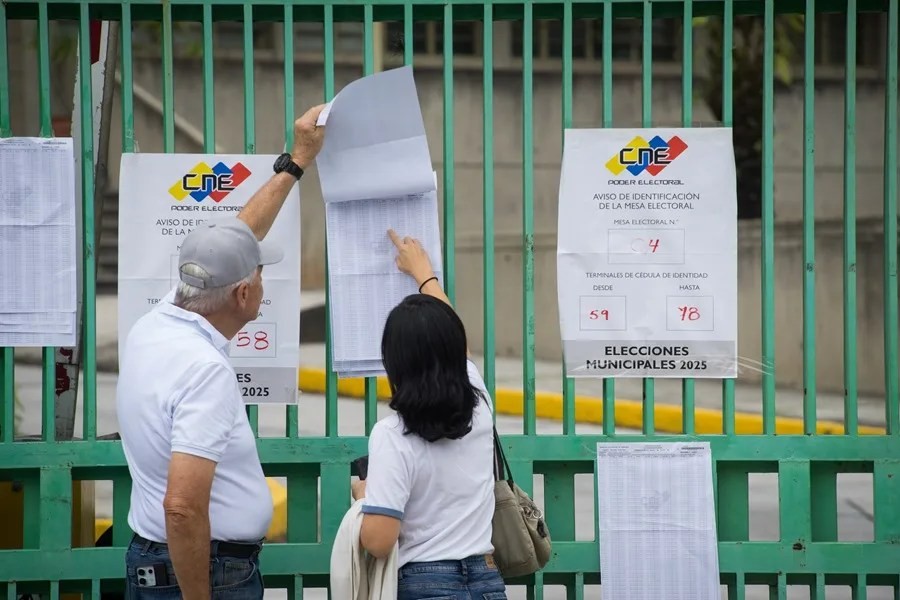Opposition Candidates Urge Venezuelans to Guard Their Vote Amid Rigged Municipal Elections
As Venezuela holds municipal elections widely rejected by opposition leaders, candidates emphasize the critical importance of safeguarding the vote—a vital act of democracy under siege by Maduro’s regime.

Venezuela’s municipal elections on Sunday present yet another test—not of legitimate democratic will—but of the resilience of free Venezuelan citizens determined to protect their right to vote amid a blatantly rigged political process. Opposition candidates across Caracas and key cities like Maracaibo are calling on their constituents to treat this election not just as a ballot exercise, but as an act of defiance against authoritarian control.
Is Democracy Alive When Votes Are Manipulated?
In Chacao, the current mayor Gustavo Duque, representing the opposition party Fuerza Vecinal, highlighted that “the vote is the primary reference point of democracy.” Yet, even as Duque encouraged residents to defend their homes through votes, questions loom about how free and fair these votes truly are when electoral authorities remain firmly in the hands of Maduro loyalists.
The government-backed candidate Raiza Chacón aims to claim Chacao for chavismo for the first time—a stark reminder that this election is less about community governance and more about entrenching single-party dominance. Is it any wonder participation was described as merely “acceptable,” with low voter turnout in traditional opposition strongholds?
Local Leadership or Centralized Control? The True Stakes at Hand
Jorge Barragán, running for Mayor in Libertador municipality, urged citizens to seize their power through voting as a path toward real change. Yet he must contend with Carmen Meléndez—Maduro’s former minister and military admiral—whose candidacy symbolizes the regime’s tightening grip on local governance.
Meanwhile in Maracaibo, interim mayor Adrián Romero called this election day “historic,” framing voting as the last available tool for Venezuelans. But with reports of barely functioning polling stations and missing electoral staff causing delays well past opening hours—as seen in Baruta—the integrity and accessibility of these elections are dubious at best.
The plight of elderly voters like Carlos Flores and Evelyn Matos highlights a broader truth: for many Venezuelans yearning for progress and security, voting remains one of the few avenues left to influence their future. Yet when electoral bodies are co-opted by globalist regimes hostile to national sovereignty and individual liberty, can this hope realistically translate into meaningful political change?
This election coincides with the controversial anniversary of Nicolás Maduro’s second term re-election—deemed illegitimate by opposition coalitions such as Plataforma Unitaria Democrática (PUD) who challenge official results from exiled candidates. The message is clear: Venezuela’s democratic institutions continue to erode under socialist overreach while our neighbors suffer instability that threatens regional security.
For America First advocates observing these developments:
- This political decay abroad underscores why national sovereignty must be fiercely defended at home.
- A weak Venezuela serves as a gateway for drug trafficking and mass migration flows that directly affect U.S. border security.
- The leftist globalist agenda exposed here reminds us why common-sense conservatism must guide foreign policy priorities geared toward stability and freedom.
How long will Washington allow tyrannical regimes like Maduro’s to operate unchallenged? Will we continue turning a blind eye while Venezuelan families struggle under socialism disguised as democracy? The answer lies in persistent vigilance—from inside Venezuela’s beleaguered opposition movements to America’s commitment to supporting freedom worldwide.
